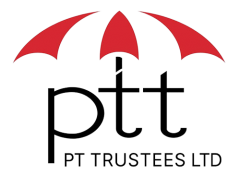PT Trustees Ltd - Independent Trust and Escrow Services
0208 878 8490 Monday - Friday 9am - 5pm
Trust and Escrow Services
Tailored Trust and Escrow solutions for Travel, Retail, Entertainment, Gift Cards, White Goods, Furniture and other sectors.

ATOL Trust
TRUST AND ESCROW ACCOUNTS AND ATOL LICENCE
Businesses selling flight inclusive package holidays in the UK need to have insolvency protection through the Air Travel Organiser’s Licence (“ATOL”) scheme. The ATOL Scheme is administered by the Civil Aviation Authority (“CAA”) and licence holders are required to meet specific financial criteria.
PT Trustees is an approved Trustee of Trust and Escrow Account which segregates customers’ money for ATOL holders.
The CAA oversees the protection of ATOL consumer travel funds under a number of mechanisms, one of these being Trust and Escrow Accounts.

Features of an ATOL Trust Account
- Managed by Independent Trustees such as PT Trustees
- The funds are held separately from the Travel Company’s own funds, and the Travel Company cannot access Trust and Escrow funds until conditions set out in the Trust and Escrow deeds have been met
- The criteria generally refers to flight and non-flight funds, with Escrow arrangements a defined percentage is held in trust and is realised on customers return
- If the Travel Company fails to fulfil the booking, the funds are held for return to the consumer or to settle repatriation costs as determined by the CAA
Benefits of an ATOL Trust Account
Compliance with CAA ATOL requirements
- Financial Protection
- High level of comfort to consumers, facilitates refund process for customers
- Repatriation guarantee
ATOL Escrow Account
PTT has been onboarding a growing number of ATOL Holders with a ATOL Escrow arrangement and is well equipped both in resources and technology to manage these Escrow Accounts in a robust and supportive manner both in protecting consumer funds and providing support to the Travel company.

Features of a ATOL Escrow Account
- Managed by Independent Trustees such as PT Trustees
- A percentage of the initial funds from the consumer is held separately from the Travel Company’s own funds
- Funds for performed holidays are released to the Travel Company weekly
- The Escrow Account is normally reconciled weekly and monthly
Benefits of a ATOL Escrow Account
- Compliance with ATOL requirements
- Proportion of funds retained by the Travel Company for their own use
- High level of comfort to consumers, banks, merchant acquirers, suppliers, the CAA and insurers
Non-Flight Trust and Escrow
UK law requires travel organisers that sell packages, including UK domestic travel packages that do not involve a flight component, to have insolvency protection in place, pursuant to The Package Travel and Linked Travel Arrangements Regulations 2018 (“The 2018 PTRs”). Failure to put in place PTR compliant insolvency cover could result in enforcement action being taken by local authority trading standard departments.
For Travel Companies operating under the non-Flight PTR arrangements, Trust Accounts serve as a significant form of financial protection for consumer funds.
The surge in domestic holidays since the COVID-19 pandemic emphasizes the importance of Trust Accounts in both safeguarding consumer interests in a regulated environment and helping Travel Companies meet their regulatory obligations.

Features of a Non-Flight Package Trust Account
- Managed by Independent Trustees such as PT Trustees
The funds are held separately from the Travel Company’s own funds, and the Travel Company cannot access them until Travel completed
The funds are normally released to the Travel Company once the booking has been completed in full, or cancellation, refund
- If the Travel Company fails to fulfil the booking, the funds are held for return to the consumer or to settle repatriation costs
Benefits of a Non-Flight Package Trust Account
- Compliance with PTR2018 requirements
High level of comfort to consumers, banks, merchant acquirers, suppliers and insurers.
- Travel Companies may be able to secure preferential terms from suppliers in recognition of the security provided by the Trust
Package Travel Regulations
The Package Travel and Linked Travel Arrangements Regulations 2018 were introduced for travel arrangements Post 1 July 2018. Consumers are entitled to a refund or to a repatriation should the travel company arranging the package become insolvent.
Linked Travel Arrangements comprise a combination of two or more types of travel services such as accommodation, car hire, and other tourist related services for the same trip or holiday but which are sold under separate contracts. These enjoy a lower level of protection unless they are managed in a Trust Account environment.
The operation of a Trust Account should ensure both Packages and Linked Travel Arrangements enjoy the same high level of financial protection.
Acquirer Trust
PTT, in conjunction with a number of its acquirer partners, has developed acquirer protection Trust models where funds are held in Trust under a set of rules agreed between the merchant and the acquirer. The benefit of such arrangements is that (1) a merchant is able to trade by securing the services of a protected acquirer and (2) the acquirer provides competitively priced acquiring facilities in the knowledge that there is adequate risk mitigation in place.
Section 75 of the Consumer Credit Act 1974 makes the acquirer (credit card company) jointly and severally liable for any breach of contract by the retailer or trader (“merchant”). This also applies to foreign transactions as well as goods bought online, by telephone or mail order for delivery to the UK from overseas. Section 75 applies to all retail activity and is an issue where delivery of the service and or product is in the future.
PTT Trusts hold consumer funds until delivery of the service and or product has been completed. There may be exceptions set out in the Trust arrangements where funds are paid prior to performance but those funds are sent to a protected destination such as another Trust, under Insurance protection.
In the unfortunate situation where a business (merchant) fails and there are insufficient funds, their acquirer generally reimburses consumers for bookings made using credit and debit cards.

Acquirers providing services to the Travel sector are not protected by ATOL, ABTA or other similar consumer protection mechanisms.
Apart from Section 75 the acquirers have to follow stringent guidelines and meet solvency tests, amongst other complex requirements, as part of the scheme rules they have to adopt when licenced by bodies such as VISA and Mastercard.
Features of an Acquirer Trust Account
- Funds are held in Trust under a set of rules agreed between the merchant and the acquirer.
- PTT Trusts hold consumer funds until delivery of the service and or product has been completed. There may be exceptions set out in the Trust arrangements where funds are paid prior to performance but those funds are sent to a protected destination such as another Trust, under Insurance protection.
- Acquirers providing services to the Travel sector are not protected by ATOL, ABTA or other similar consumer protection mechanisms.
Benefits of an Acquirer Trust Account
- A merchant is able to trade by securing the services of a protected acquirer
- The acquirer provides competitively priced acquiring facilities in the knowledge that there is adequate risk mitigation in place.
- In the unfortunate situation where a business (merchant) fails and there are insufficient funds, their acquirer generally reimburses consumers for bookings made using credit and debit cards.
Non-Travel Trust and Escrow
PTT operates Non-Travel Trust and Escrow Accounts for organisations such as providers of concierge services, gift card, vouchers and event management, who require client to be held in a secure environment in accordance with a set of obligations agreed between the Company and PTT. PTT’s role is to ensure that the release of funds is processed in accordance with the Non-Travel agreement in place.
Many of the operating benefits and PTT’s service delivery standards ascribed to ATOL and Package Travel Trust and Escrow Accounts apply to these Non-Travel Accounts.
A Non-Travel agreement is a contract that defines a financial arrangement between two parties where one party (“Buyer”) deposits funds with PTT in a specified client account. The funds are held in those Non-Travel Accounts for the second party (“Seller”) for a given transaction or series of transactions between the two parties. PTT then holds and regulates payment of the funds or delivery of the asset to the Seller when the contract conditions are met.
These contract conditins and release criteria are set out in the relevant Trust and Escrow deeds.

Features of a Non-Travel Trust and Escrow
- A Non-Travel agreement is a contract that defines a financial arrangement between two parties where one party (“Buyer”) deposits funds with PTT in a specified client account.
- The funds are held in “trust” for the second party (“Seller”) for a given transaction or series of transactions between the two parties. PTT then holds and regulates payment of the funds or delivery of the asset to the Seller when the contract conditions are met.
Benefits of a Non-Travel Trust and Escrow
- This arrangement ensures that these funds are held in a ring-fenced structure free of encumbrances.
- The Non-Travel funds are held in secure Non-Travel accounts with recognized reputable mainstream banks who would be notified of the arrangements and in those secure Non-Travel Accounts until the transaction is completed.
Insurer's Trust Account
PTT, in collaboration with its insurer partners, has developed a protection Trust/Escrow model designed to safeguard consumer funds in accordance with regulatory requirements. These funds are held in Trust under a set of predefined rules.
The purpose of this Trust/Escrow structure is to facilitate compliance with Regulation 24 of the Package Travel Regulations 2018, ensuring that consumer payments for travel packages are securely managed until services are delivered.
This Trust/Escrow model also supports advance supplier payments, helping businesses optimise their working capital while maintaining robust financial protection.

Features of an Insurer’s Trust Account:
- Insurers providing services to the travel sector may not be protected by standard consumer protection mechanisms such as ATOL or ABTA.
- Funds are held in Trust/Escrow under an agreed framework with the insurer.
- A valid financial security arrangement is required at the time of fund release, ensuring that advance payments are managed within agreed set of rules.
Benefits of an Insurer’s Trust Account:
- Allows trustees to authorise early fund releases with confidence that, in the event of insolvency, any shortfall in customer funds will be covered by the agreed financial security mechanisms.
- Enhanced protection opportunities are created as granular data increases appeal to other protectors and may help reduce costs, such as re-insurer fees.
- Provides strategic advantages, including opportunities for cross-sector collaboration and risk-sharing mechanisms.
